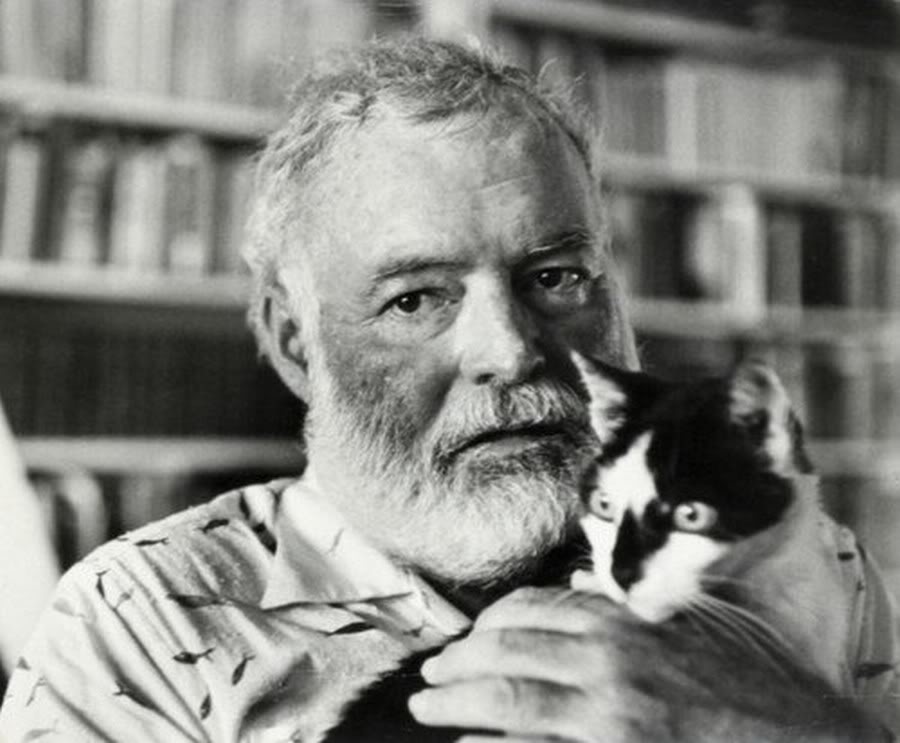Years: 1899 – 1961
Nationality: American
Notable Works: The Sun Also Rises, A Farewell to Arms, The Old Man and the Sea, For Whom the Bell Tolls
Quote: “We're stronger in the places that we've been broken.”
Trivia: A ship captain gave Hemingway a polydactyl (six-toed) cat named Snowball. Snowball is the ancestor of the 40-50 cats that now live on Hemingway’s Key West property.
1. “The first draft of anything is shit.”
You worked hard on your manuscript, and now you’re done. Congratulations on finishing such an endeavor. You may have thought the writing part was hard, but now comes the editing process. If you are lucky enough to have a publisher accept your work, be aware the editor will have suggestions on how to improve the manuscript. All editors know how much work you put in, and they respect that. Their suggestions are to improve the story, perhaps in ways you didn’t even think about. Revision is necessary to make your book the best possible.
2. “All you have to do is write one true sentence. Write the truest sentence that you know.”
No pressure, right? Don’t think too hard about this – just let your truth come pouring out, and then refine.
3. “If I started to write elaborately, or like someone introducing or presenting something, I found that I could cut that scrollwork or ornament out and throw it away and start with the first true simple declarative sentence I had written.”
That’s how Hemingway became the straightforward story teller we know.
4. “In order to write about life first you must live it.”
Go have experiences! Have fun, get upset, eat too much, get dirty. Live your life and then tell us what you know and how you feel.
5. “There is no rule on how to write. Sometimes it comes easily and perfectly; sometimes it's like drilling rock and then blasting it out with charges.”
It’s always good to remember that everyone has problems with writing. You’re not alone with your good days and bad days.
6. “When writing a novel a writer should create living people; people not characters. A character is a caricature.”
Make your characters three dimensional. Don’t just tell us how they look and sound. What are their values? What are their fears? Tell us about their good and bad qualities. What lessons do they need to learn?
7. “I like to listen. I have learned a great deal from listening carefully. Most people never listen.”
Thoughtful listening can help writers greatly for several reasons. You learn about people. It offers you the ability to understand people’s motives. It teaches you the rhythm of speech for different people or situations (gossipy, lying, honesty, dumb, smart, etc.). It helps you understand what people value and dislike. You learn what people care about, and what their words say about them.
8. “If a writer stops observing he is finished. Experience is communicated by small details intimately observed.”
This relates to the previous tip. Never stop observing other people and other things. An author who observes can let the readers know what a character is thinking just by a single movement, action, sentence of dialogue.
9. “Remember to get the weather in your damn book--weather is very important.”
Though a bit tongue-in-cheek, Hemingway is not wrong. Readers want to see everything you are writing. Don’t get bogged down in very minute details – unless somehow important. Let us picture the major aspects: weather, scenery, clothing, rooms, objects of importance to the story.
10. “It is all very well for you to write simply and the simpler the better. But do not start to think so damned simply. Know how complicated it is and then state it simply.”
This may be the most difficult piece of advice to practice. How does one turn a complicated idea into simple prose for others to easily digest? Writing simply, in the style of Mr. Hemingway, is not an inferior approach to writing.
Thanks to the wonderful people at Good Reads, The Ernest Hemingway Home and Museum, and The Ernest Hemingway Foundation of Oak Park for supplying the above information.





















